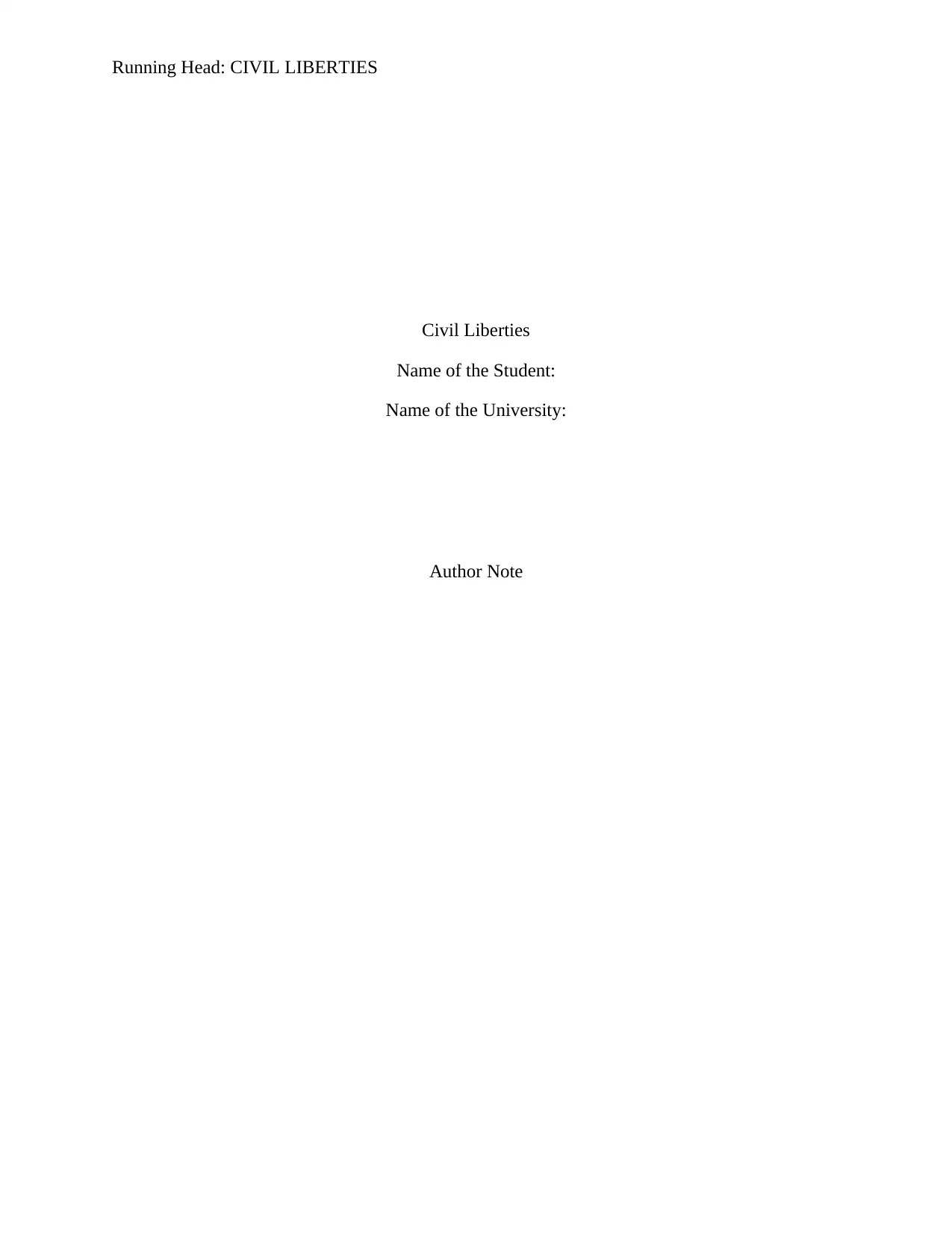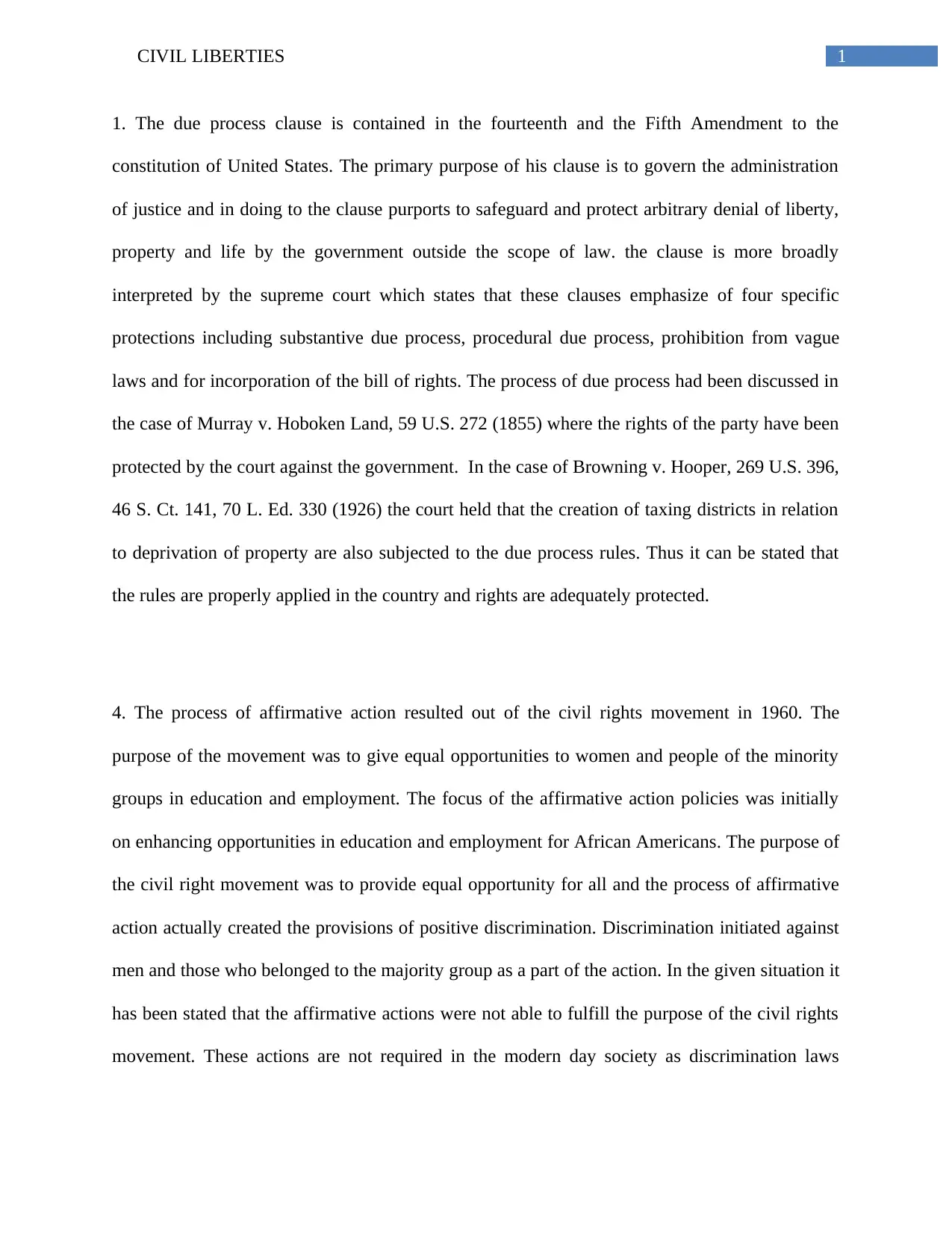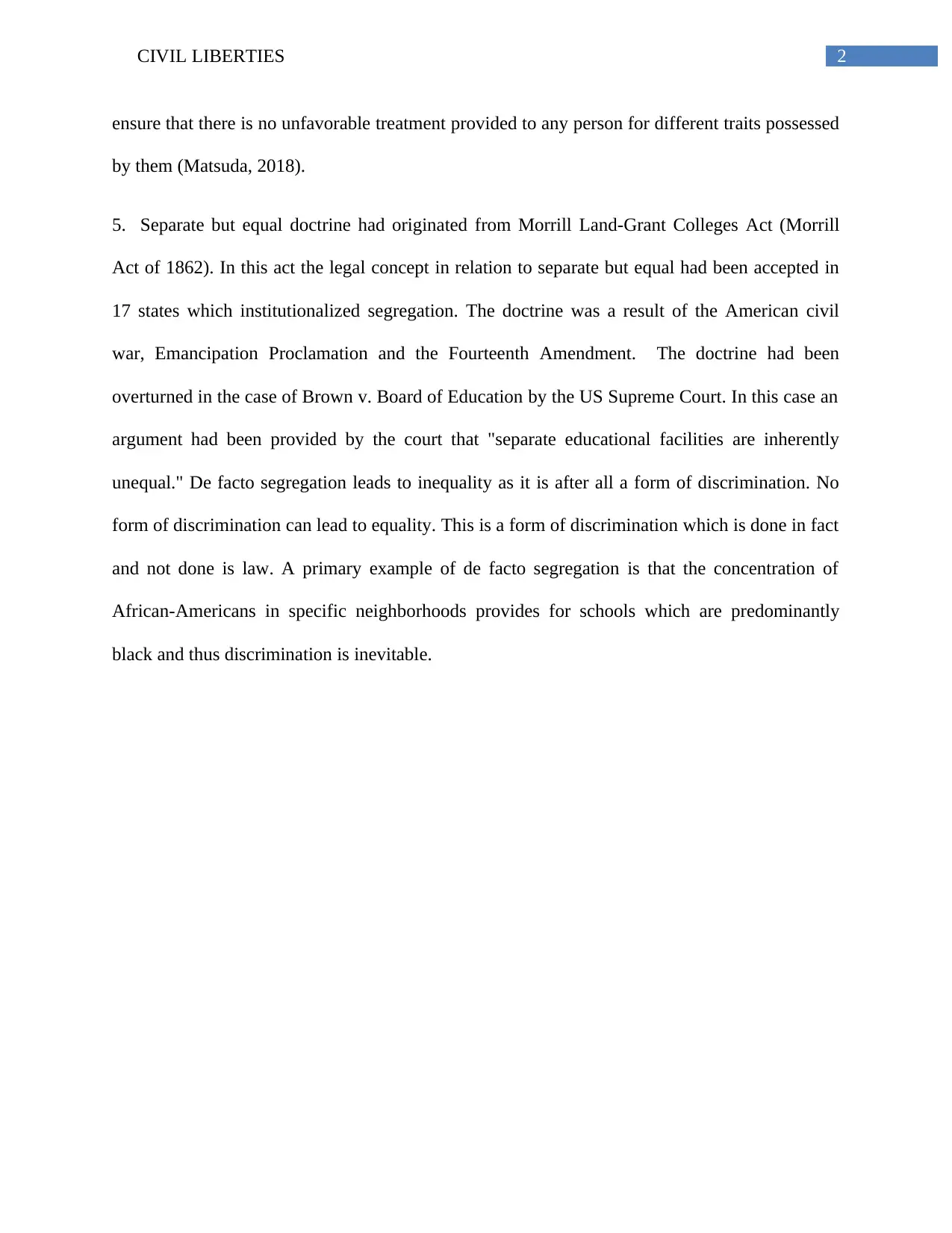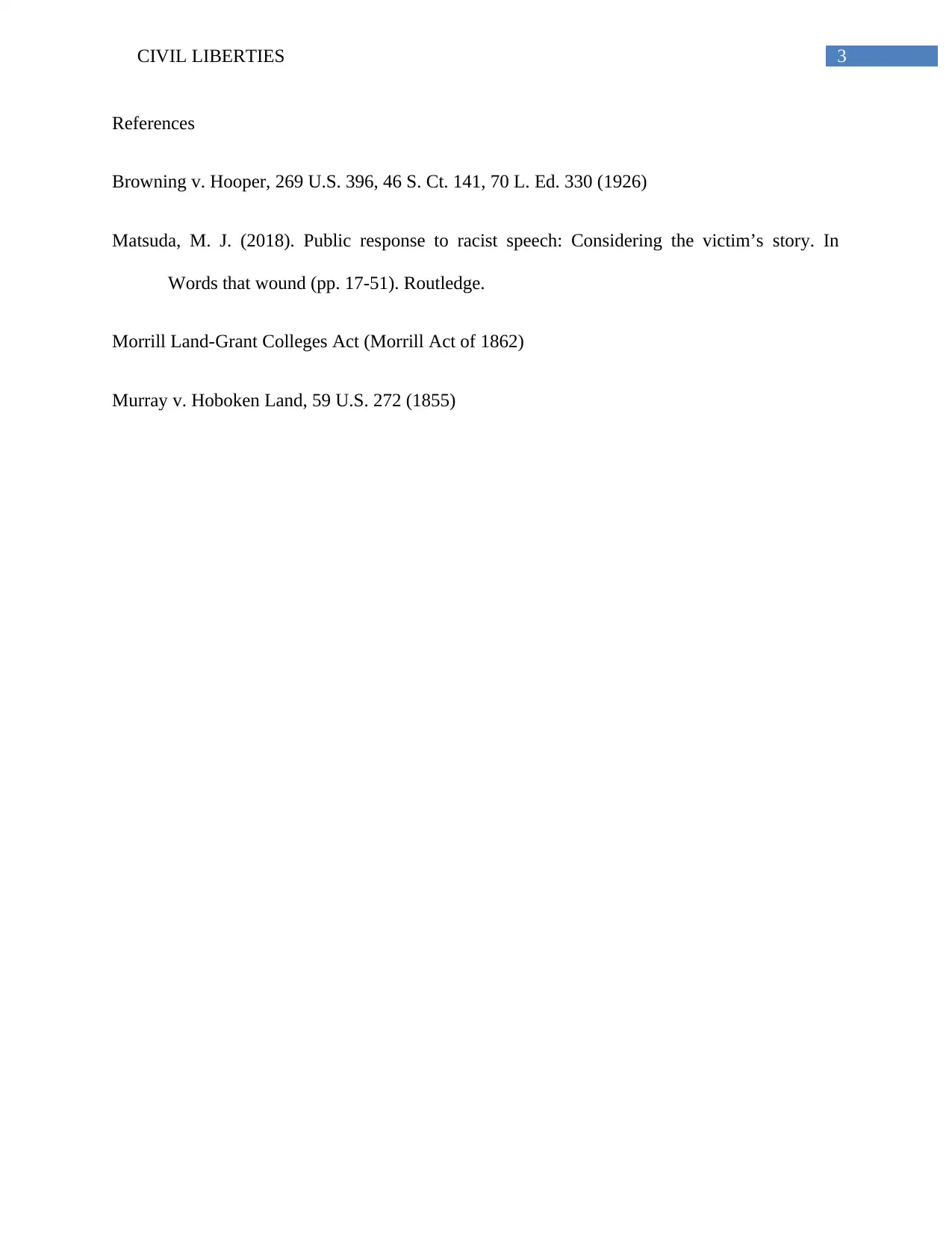Civil Liberties: Due Process, Affirmative Action, Segregation Analysis
VerifiedAdded on 2021/06/17
|4
|652
|195
Homework Assignment
AI Summary
This assignment delves into key aspects of civil liberties within the United States legal framework. It begins by examining the due process clause, as outlined in the Fourteenth and Fifth Amendments, highlighting its role in protecting individuals from arbitrary governmental actions and ensuring fair administration of justice. The analysis references significant court cases, such as Murray v. Hoboken Land and Browning v. Hooper, to illustrate the application and interpretation of due process. The assignment then explores affirmative action, tracing its origins to the civil rights movement and its initial goals of providing equal opportunities for women and minorities in education and employment. The discussion evaluates the effectiveness of affirmative action policies and their relevance in contemporary society, considering the role of anti-discrimination laws. Finally, the document addresses the 'separate but equal' doctrine, originating from the Morrill Act of 1862, and its eventual overturning in Brown v. Board of Education, emphasizing the inherent inequalities of segregated educational facilities. The assignment also touches upon de facto segregation and its discriminatory consequences.
1 out of 4











![[object Object]](/_next/static/media/star-bottom.7253800d.svg)